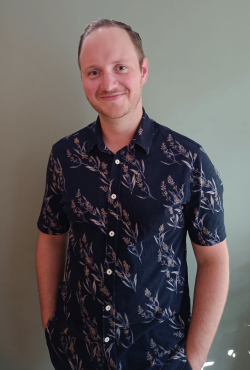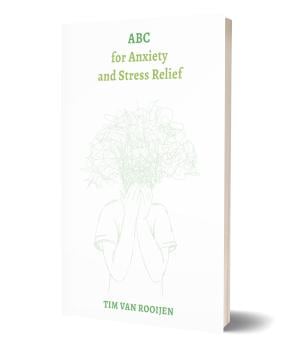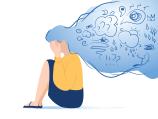My ABCs for Anxiety and Stress Relief
 I began suffering from a social anxiety disorder in 2017 when I started working full time. A year later my father died by suicide and after that, I was in really bad shape. Years of therapy and reading a lot of self-help books proved useful, and I can now say that I am back on track. But the road was filled with challenges and while I have overcome a lot of them, there are still things I’m learning every day. I wanted to share my story with ADAA because so many of the stories people have bravely and honestly shared on the ADAA website resonated with me, all the way from the Netherlands.
I began suffering from a social anxiety disorder in 2017 when I started working full time. A year later my father died by suicide and after that, I was in really bad shape. Years of therapy and reading a lot of self-help books proved useful, and I can now say that I am back on track. But the road was filled with challenges and while I have overcome a lot of them, there are still things I’m learning every day. I wanted to share my story with ADAA because so many of the stories people have bravely and honestly shared on the ADAA website resonated with me, all the way from the Netherlands.
I have made it my mission to reach as many people as possible who are struggling with anxiety and hopefully inspire them with my own journey. I experienced my anxiety disorder as something terrible. I am not completely over it yet, but it doesn't affect me as much on a daily basis anymore. I can now do a lot of things that I did not even consider possible before. Years ago I was not able to sit in a meeting without having a panic attack, even if I did not have to say anything. Today I can lead meetings and in certain situations even present for a while. This is a major achievement for me as I never thought I would be comfortable enough to do that.
Therapy has made a real difference. I have had three therapists and two coaches over six years and each of them had a different approach. It was not that the first therapist was not able to help me; I was not ready to be helped completely. So she worked with me to create a plan and nudged me in the right direction. I set off under the guidance of a coach, and then my father died. I immediately relapsed and avoided all anxiety provoking situations. I went back to therapy and focused on cognitive behavioral therapy (CBT), doing as many exposure exercises as possible. It was nerve racking but in the end it helped me a great deal. After a year I was ready to go solo again.
I continued to read a lot of self-help books, both in Dutch, my native language, and English, and I think I’ve watched every anxiety-related TED talk out there! But I felt like there was still more to be gained. There were still situations I avoided and I feared pursuing a career as it would mean more responsibility and stress. I did not want to be held back like that so I went back to therapy. This time we focused on scheme and mode therapy and acceptance and commitment therapy (ACT). These forms of therapy really helped me feel more at ease with my anxiety disorder instead of obsessively trying to change it.
 Without therapy I truly believe I would not have been able to get better nor would I have been able to accept the anxiety as a part of who I am. My anxiety will never be completely gone and I have come to terms with that, but now I try to redirect it in a positive way: creating more personal relationships with friends, colleagues and even clients. By opening up to them they tend to open up to me as well.
Without therapy I truly believe I would not have been able to get better nor would I have been able to accept the anxiety as a part of who I am. My anxiety will never be completely gone and I have come to terms with that, but now I try to redirect it in a positive way: creating more personal relationships with friends, colleagues and even clients. By opening up to them they tend to open up to me as well.
Another way I have managed my anxiety disorder is through helping others who are dealing with something similar. I wrote a book (ABC for Anxiety and Stress Relief) which outlines the various lessons I have learned through some of the toughest years of my life. The lessons and even writing the book itself have helped me to reduce or prevent anxiety and excessive stress and I wanted to put them together in one place. Realizing that my struggle has not been for nothing, that I have grown from it as a person, and that I can help and inspire others as well has been a motivating factor and I wanted to share that with as many people as I can.
If you are struggling with anxiety and/or stress, and if you would like to read my story and how I learnt to deal with it, please feel free to download my e-book here.
- Share Your Story and Voice and Help #breakthestigma Around Mental Health
- Support ADAA's Mission - Every Gift Makes an Impact
- Join an ADAA Online Peer to Peer Support Community
- Find Your Therapist



















